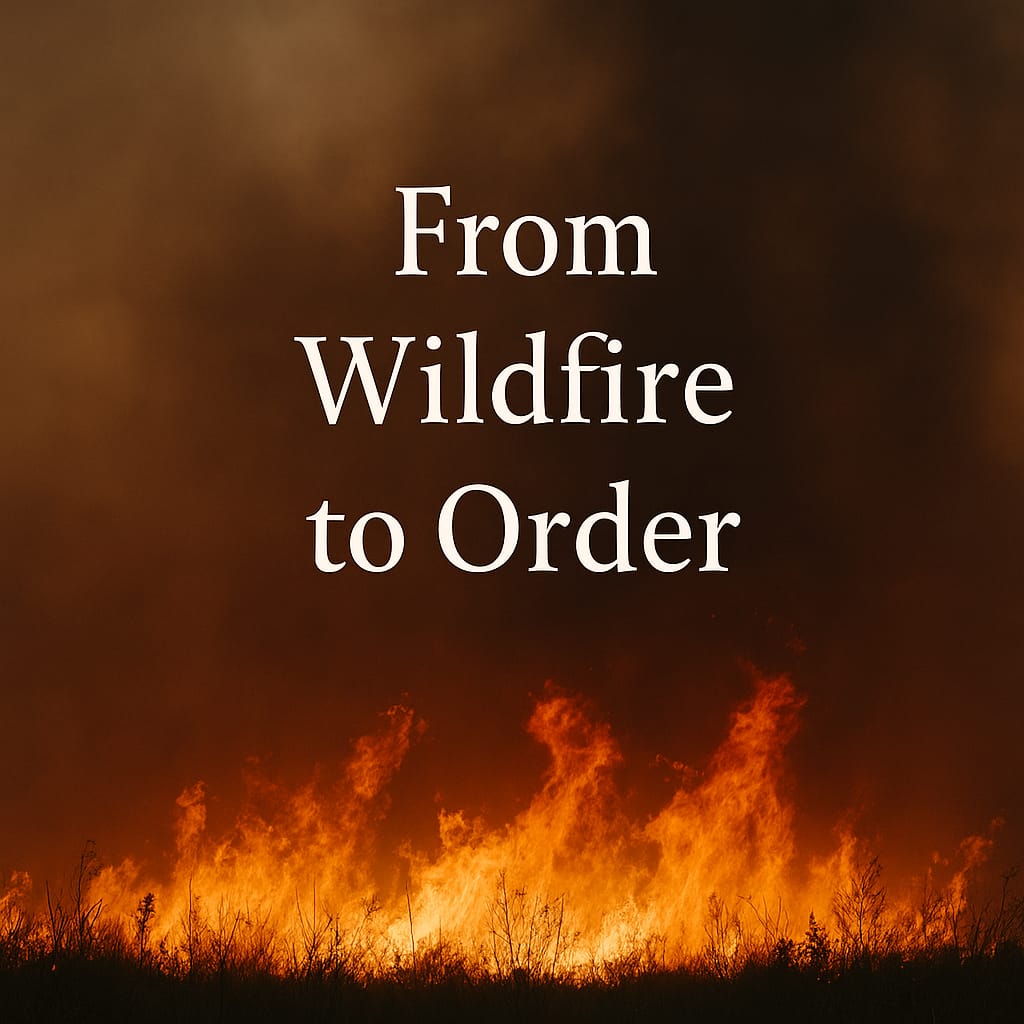Five Things We Will Learn
- How persecution scattered the early church and fueled the spread of the gospel.
- Why the gospel’s wild growth was both beautiful and chaotic.
- How Barnabas and Paul brought apostolic order to new believers.
- Why Paul’s letters served as essential “weeding and pruning” for the church.
- How apostolic order and relationship sustained long-term growth.
The Scattering of the Early Church
Picture this: the early church in Jerusalem is just starting to take root when Saul, before he becomes Paul, unleashes brutal persecution. Acts 8:1–4 tells us that after Stephen’s martyrdom, believers scatter like seeds in the wind—fleeing to Judea, Samaria, and beyond.
This wasn’t just chaos; it was a divine setup. Those scattered believers, ordinary folks, didn’t stay silent. They preached the gospel wherever they landed—places like Phoenicia, Cyprus, and Antioch in Syria (Acts 11:19–20). What looked like defeat became the spark that lit a wildfire of faith.
Wild Growth of the Gospel
This scattering led to what can only be called wild growth. People heard about Jesus, believed, and spread the word like never before. In Antioch, Acts 11:20–21 says some believers from Cyprus and Cyrene began preaching to Greeks, not just Jews—and a great number turned to the Lord.
It was raw, passionate, and unstoppable—like seeds sprouting everywhere, no matter the soil. Cyprus, Samaria, Antioch—these places were buzzing with new believers. But with growth came messiness: a garden with no fences, no rows, just shoots and weeds intertwined.
The Beauty and Chaos of New Believers
New believers are beautiful—their zeal, their raw faith, their joy in Jesus. But zeal without grounding can cause problems. Corinth and Galatia remind us how quickly pagan ideas, cultural habits, and rivalries crept into the church.
Acts 11:21 shows us the Spirit was moving powerfully, but without guidance, that growth risked being choked by false teachings, divisions, and confusion. It’s like a garden without weeding—vibrant at first, but unsustainable without care.
God Sends Barnabas and Paul
This is where God steps in with a plan. Barnabas, “the encourager,” is sent to Antioch (Acts 11:22–24). He sees God’s grace at work, nurtures the believers, and then brings in Paul, recently converted (Acts 9). Together they spend a year in Antioch (Acts 11:25–26), grounding the church in truth.
By Acts 13, the Holy Spirit sends them further—Cyprus, Pisidian Antioch, and beyond—preaching, planting churches, and establishing order. Barnabas and Paul weren’t just preachers; they were God’s gardeners, shaping wild growth into healthy fruitfulness.
Paul’s Letters: Weeding the Garden
Paul’s letters reveal his apostolic role—pulling weeds, pruning branches, and strengthening the plants.
- In Galatians, he confronts false teachers adding circumcision to the gospel (Galatians 1:6–9).
- In 1 Thessalonians, he corrects confusion about Jesus’ return (1 Thessalonians 4:13–5:11).
- In Philippians, he addresses disunity, urging humility (Philippians 2:1–4).
Each letter targeted specific issues—immorality, pride, false doctrine—threatening to choke the church. He wasn’t just correcting; he was cultivating, planting instructions for maturity (Ephesians 4:11–16).
The Role of Apostolic Order
Paul and Barnabas didn’t only preach and move on. They built roots. Acts 14:23 shows them appointing elders. Paul sent Timothy and Titus to establish leadership and order (Titus 1:5).
This wasn’t about control—it was about protection. Without structure, the gospel wildfire could have burned out or been overtaken by weeds. Apostolic order gave churches stability, accountability, and resilience to weather storms.
Sustaining the Growth Through Relationship
Structure alone wasn’t enough. What sustained the churches was relationship. Paul calls the believers his children (1 Corinthians 4:14–15). He visited, wrote, sent trusted partners like Timothy, and invested deeply.
Barnabas vouched for Paul in Acts 9:27, modeling trust and encouragement. Their leadership was relational, not distant commands. This personal care helped turn wild shoots into lasting harvests.
Why It Matters
The early church’s story teaches us this: wild growth is a gift, but without apostolic order, it risks becoming short-lived. Through persecution, scattering, and wild expansion, God raised up Barnabas and Paul to shepherd the growth.
Their letters, their leadership, their love—these turned scattered seeds into a strong harvest. The same pattern holds true today: passion without order burns out, but when growth is nurtured with guidance, the church doesn’t just survive—it thrives.




